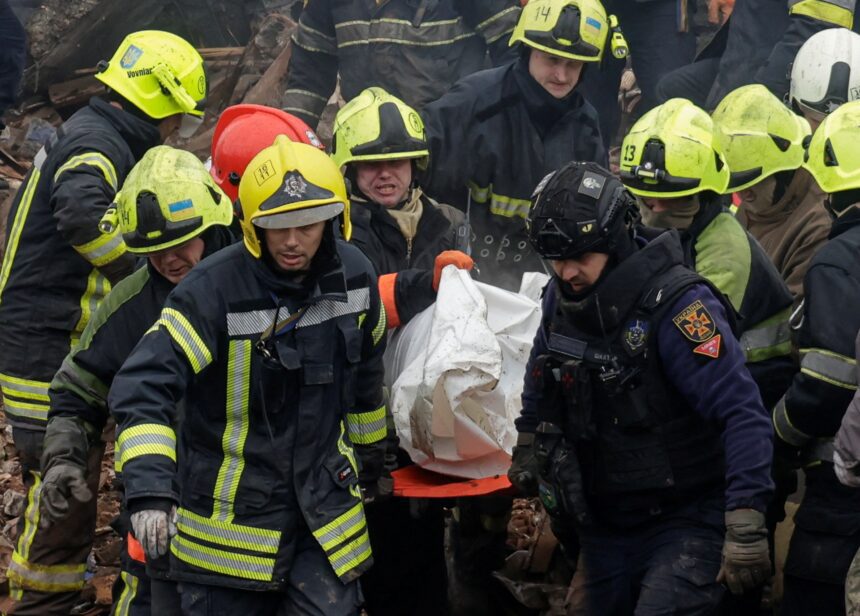Presented below are the events as of Monday, February 3:
Conflict
- The prosecutor general’s office of Ukraine announced the charging of two individuals in connection with the murder of an army draft officer in the central Poltava region. It is alleged that one of the suspects, while being transported to a military training center, made a phone call to an acquaintance who then arrived at the scene and shot the officer.
- The police in Kyiv reported that one individual was injured in an explosion of an “unidentified object” near a Ukrainian military recruitment center in Pavlohrad. The Dnipropetrovsk regional police stated that an investigation is ongoing.
- According to state-run news agency TASS, Russia’s Supreme Court rejected the appeal of prominent nationalist and former militia commander Igor Girkin against his four-year prison sentence for inciting extremism.
- Flights were halted at multiple airports in the southern Russian region of Astrakhan after a falling drone from a Ukrainian territory overnight ignited a fire, Governor Igor Babushkin stated. Fortunately, there were no reported casualties.
- Russia unlawfully deported over 20,000 Ukrainian children to occupied Crimea and Russia since 2022 under the guise of evacuation and rehabilitation programs, as stated by Ukraine’s presidential advisor on children’s issues, Daria Herasymchuk. With the help of humanitarian organizations and allies, Ukraine was able to repatriate 1,189 children, she added.
- Herasymchuk also accused Moscow of violating the Geneva Convention by attempting to mobilize Ukrainian teenage boys into the Russian military. The Institute for the Study of War has reported that Russia has utilized “rehabilitation” and “evacuation” camps in Crimea to indoctrinate and militarize Ukrainian children.
Political Affairs & Diplomacy
- Russian President Vladimir Putin criticized the decision not to invite Moscow to the Auschwitz liberation events as “strange” and “shameful”. Putin suggested that a more subtle approach could have been taken, and that the relatives of Soviet soldiers who liberated the camp could have been invited if it was not feasible to invite the soldiers themselves due to health or age.
- Putin commended the political style of US President Donald Trump, predicting that the newly inaugurated president would bring the European elite back under control. He expressed confidence that this would occur promptly, with European leaders obediently following Trump’s lead.
- Keith Kellogg, Trump’s envoy in Ukraine, emphasized the need for both Kyiv and Moscow to be willing to compromise in order to successfully negotiate an end to the ongoing conflict. “I believe both sides will need to make concessions,” he stated.
- President Volodymyr Zelenskyy of Ukraine appealed to the West for increased support in order to defend Kyiv against Russia’s targeted attacks. “We require enhanced protection – air defense systems, long-range weapons, and sanctions pressure,” he emphasized.
- Dmytro Lytvyn, Zelenskyy’s communication advisor, expressed skepticism regarding the US’s suggestion for Kyiv to hold an election following a ceasefire agreement with Moscow, labeling it a “unsuccessful strategy” without further details. While acknowledging that he had not seen Kellogg’s full interview on the matter, he stressed Ukraine’s preference for a more comprehensive approach.
- Trump indicated that negotiations with Russia and Ukraine were progressing favorably. He disclosed that meetings and discussions were scheduled with relevant parties from both Kyiv and Moscow.










